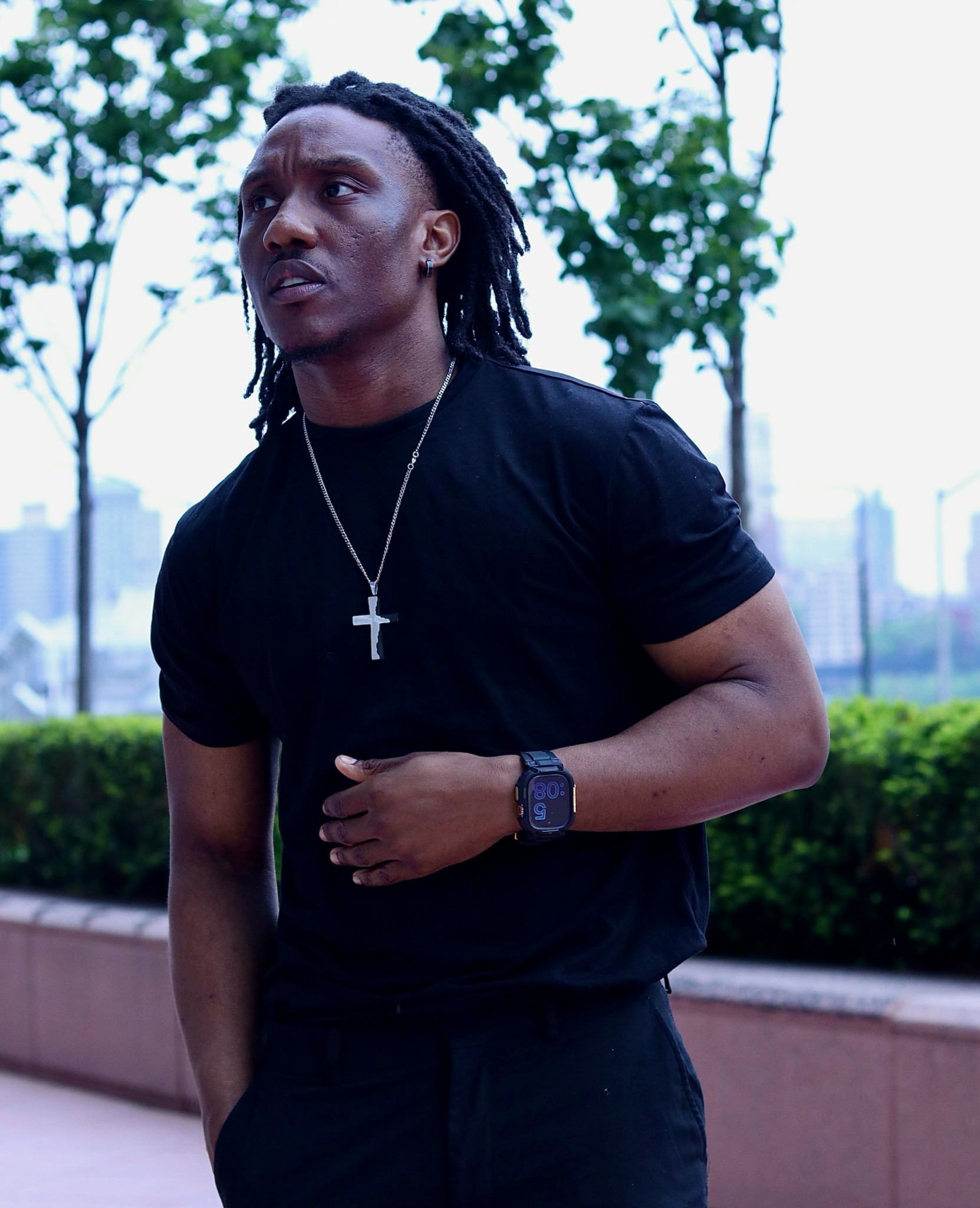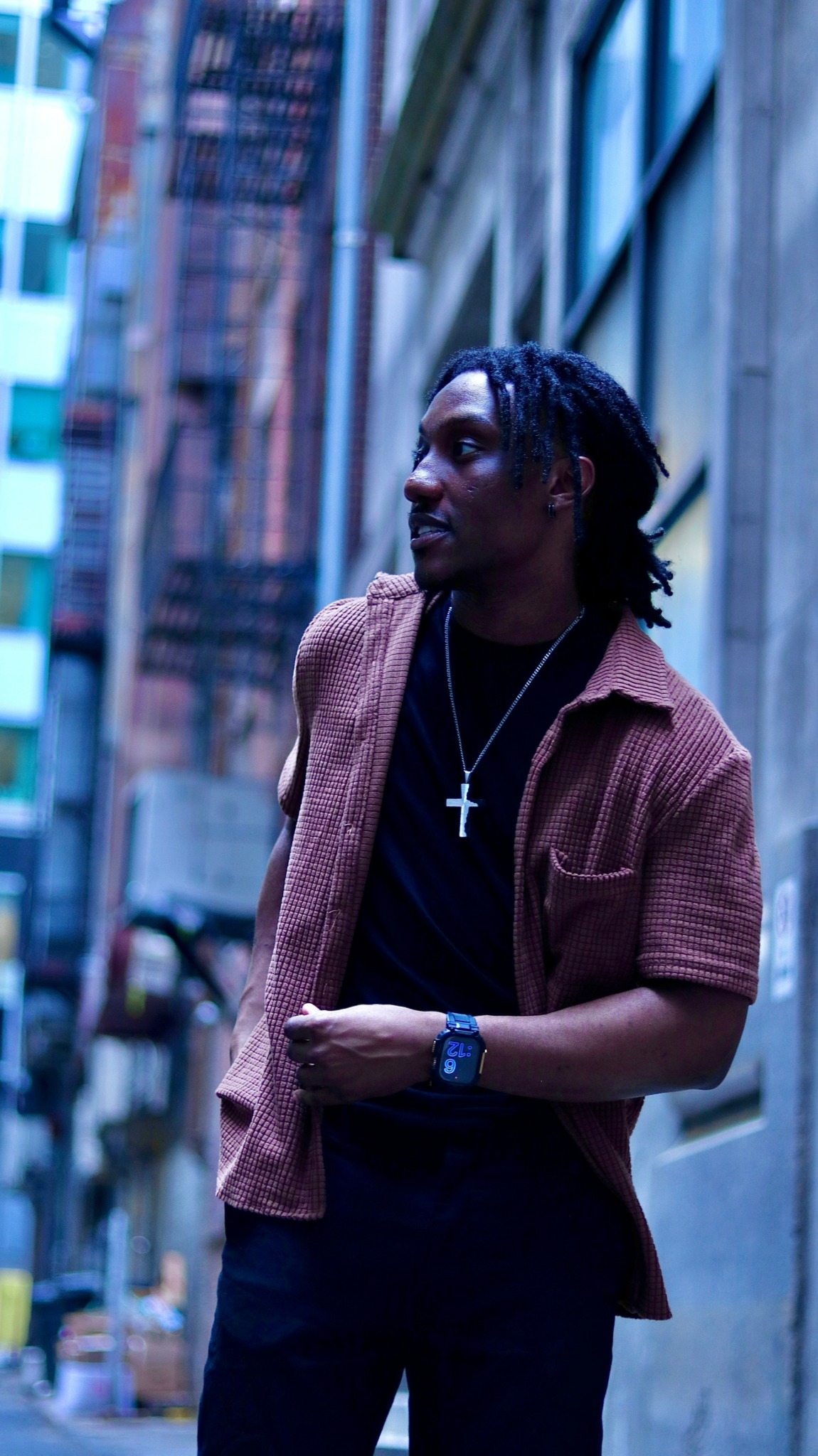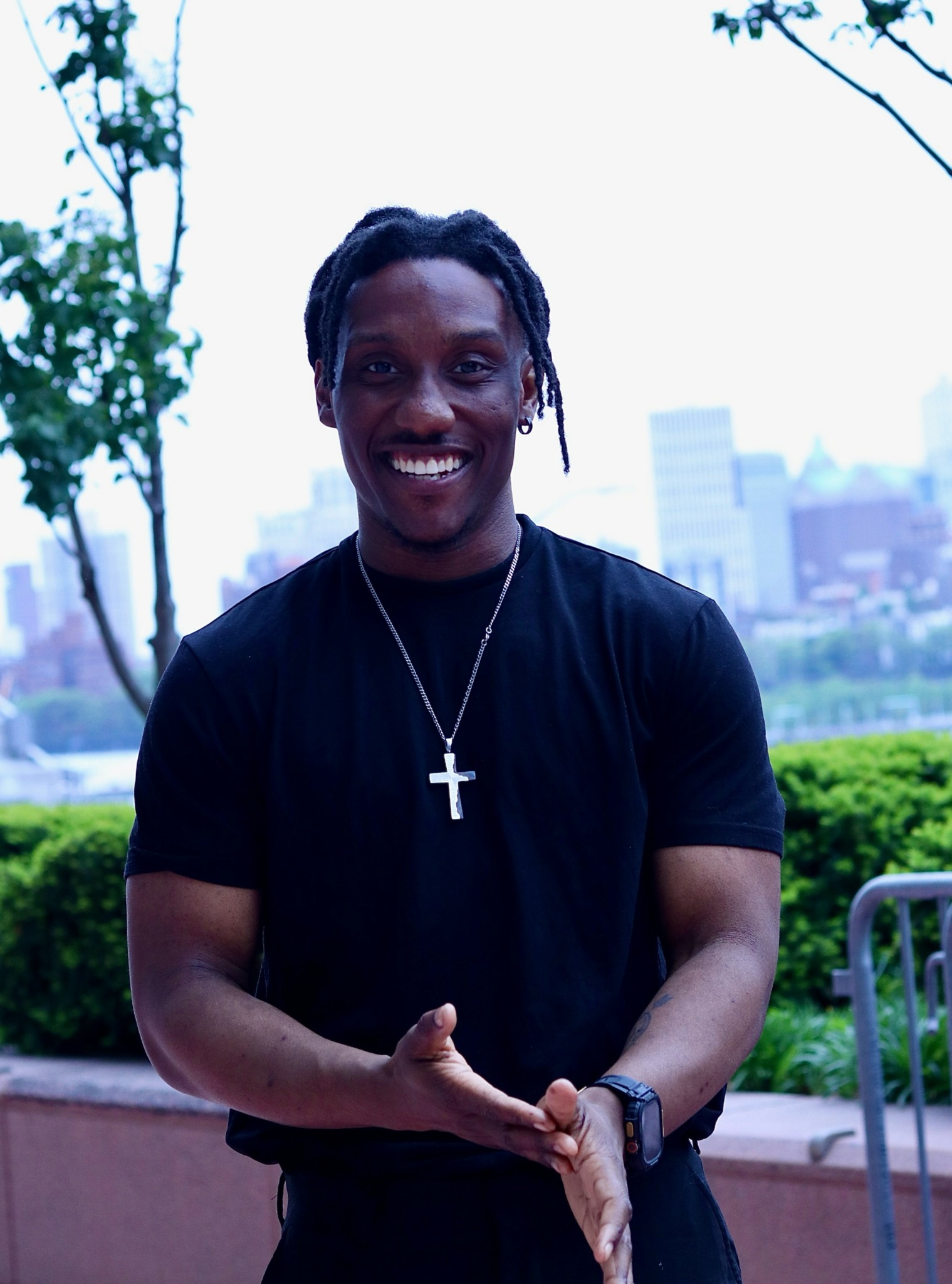We were lucky to catch up with Malachi Alexis recently and have shared our conversation below.
Hi Malachi, thanks for joining us today. Can you talk to us about a project that’s meant a lot to you?
I’ve worked on many projects that mean a lot to me—Jim and Skin Deep among them—but right now, the project that truly holds my heart is The Last Performance. This film is deeply personal, not just because of the story it tells, but because it reflects so much of what has shaped me as an artist.
I grew up surrounded by film, poetry, and the soul-stirring sounds of blues and jazz. Those elements weren’t just art forms to me—they were languages, ways of expressing emotion that words alone couldn’t capture. The raw honesty of blues music, the rhythm and depth of poetry, and the immersive storytelling of cinema all shaped how I see the world. With The Last Performance, I wanted to bring those influences together into something that feels both deeply personal and universally resonant.
This project is more than just a film—it’s an exploration of what it means to be an artist, the sacrifices we make for our craft, and the legacies we leave behind. It’s about passion, love, regret, and the haunting presence of the past. The story of Willie Montgomery—an artist reckoning with his choices and the cost of his dreams—feels like something I’ve always been meant to tell.
What makes this project so meaningful to me is that it captures the soul of why I create. I make films to explore emotions that can’t always be put into words, to tell stories that linger in the mind long after they’re told. The Last Performance is my love letter to blues music, to storytelling, to the artists who have come before me, and to those still finding their voices.

Malachi, before we move on to more of these sorts of questions, can you take some time to bring our readers up to speed on you and what you do?
I’ve been a storyteller for as long as I can remember. I started writing at six years old, creating stories and poems as a way to explore my imagination and express emotions I didn’t yet have the words for. When I got a little older, my brothers and I would make films just for fun, crafting stories out of whatever we had around us. But it wasn’t until my older cousin encouraged me to seriously pursue filmmaking that I truly began to see it as more than just a hobby—it was my purpose.
That push set me on a path of storytelling that has shaped every aspect of my career. I went on to study psychology at Brooklyn College, and that background has deeply influenced my work. I’ve always been fascinated by the human mind—how we think, what we feel, and why we make the choices we do. That curiosity finds its way into every story I tell. Whether I’m writing, directing, or editing, my goal is always to explore the emotional and psychological depths of my characters, creating narratives that feel raw, introspective, and deeply human.
What sets my work apart is the way I merge different artistic influences. Film and poetry have been central to my creative voice, and I approach storytelling with the same rhythm and emotion, crafting experiences that linger long after the screen fades to black. My editing style is about more than just cutting images together—it’s about shaping an experience, guiding the audience through a story in a way that makes them feel something real.
More than anything, I want my work to leave an impact. I want to tell stories that stick with you, that challenge you, that make you reflect on your own life and choices. Whether I’m working on my own films or collaborating with others, my goal is always the same—to create something meaningful. Because to me, storytelling isn’t just about entertainment; it’s about transformation.

Learning and unlearning are both critical parts of growth – can you share a story of a time when you had to unlearn a lesson?
One of the biggest lessons I had to unlearn was the idea of shaping myself into what others expected me to be instead of embracing who I truly am. Growing up, there was always pressure to pursue a stable, respected career—specifically in the medical field. I even went to college with that path in mind, convincing myself that it was the right thing to do. But deep down, I knew it wasn’t my passion.
Everything changed after two conversations—one with my cousin, who had always pushed me to follow my dreams, and another with my college guidance counselor. Though they were two different people in completely different settings, they both asked me the same life-altering questions: “Will you truly feel complete if you live your life for others instead of yourself?” and “Ten years from now, will you look back and be proud of what you’ve done?”
That wasn’t a coincidence. That was my sign. It forced me to confront the reality that I had been living for other people’s expectations rather than my own fulfillment. I realized that I only have one life, one story to live, and I can’t waste it walking a path that isn’t meant for me. From that moment on, I chose to embrace my true calling—storytelling and filmmaking.
Unlearning that pressure to conform wasn’t easy, but it was necessary. It taught me that success isn’t about meeting other people’s standards—it’s about creating a life that feels true to who you are. And for me, that means dedicating myself to the one thing I was always meant to do: creating art.

What’s the most rewarding aspect of being a creative in your experience?
For me, the most rewarding aspect of being a creative is seeing my work come to life and witnessing the impact it has on others. There’s something incredible about meeting people who have been inspired or moved by something I’ve created—seeing how a story, a film, or even a single moment can resonate with someone on a deep level. That, more than anything, is what makes this journey worthwhile.
It has never been about the money. It’s about being part of something bigger—whether it’s my own work or collaborating on someone else’s vision. Watching an idea evolve, grow, and take on a life of its own is the greatest payoff.
As an artist, I believe you have to create for yourself first. If you don’t love what you’re making, how can you expect anyone else to? True artistry comes from a place of passion and authenticity. When you create something that genuinely speaks to you, that love and intention shine through—and that’s what ultimately connects with the world.
Contact Info:
- Website: https://www.malachialexis.com/
- Instagram: https://www.instagram.com/malix.a122/
- Linkedin: https://www.linkedin.com/in/malachi-alexis-948325190
- Youtube: https://www.youtube.com/@malixxfilms8890




